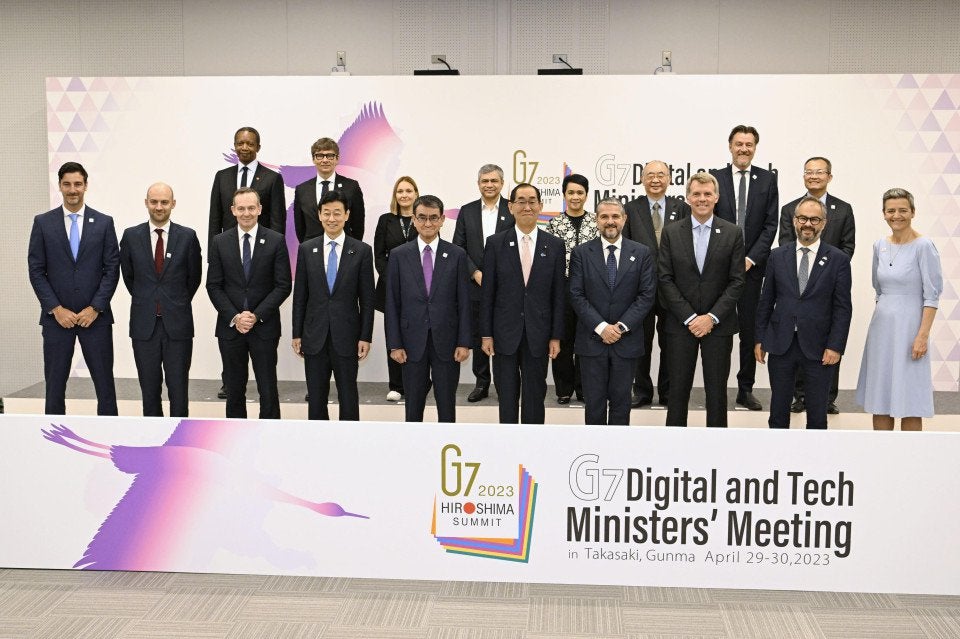G-7 ministers agree on 5 principles to govern AI, emerging tech, while India announces its own Quantum Project

Ministers from the Group of Seven industrialized nations met Saturday in eastern Japan to discuss artificial intelligence governance amid the rapid increase in the use of AI chatbots, as well as other high-priority issues like secure digital infrastructure.
The two-day G-7 Digital and Tech Ministers’ Meeting in the Gunma Prefecture city of Takasaki, northwest of Tokyo, is one in a series of ministerial meetings taking place in the run-up to the G-7 summit next month. Among its aims is the promotion of technologies to improve the flow of cross-border data and a free and open internet.
“While advancement of AI technologies can make business of the government and the private sector more efficient and more productive, it could create unexpected challenges to democracy,” said Digital Minister Taro Kono, who is jointly chairing the meeting with Japanese Economy, Trade and Industry Minister Yasutoshi Nishimura and Internal Affairs and Communications Minister Takeaki Matsumoto.
Kono, who gave his address in English at the opening session which was open to the media, expressed hope a consensus could be reached on the issues to be discussed.
The fast-moving pace of AI development has highlighted the need for international standards to govern the technology, with many countries stepping up regulations on the use of OpenAI’s ChatGPT over privacy concerns.
In addition to opposing uses that would undermine democratic values, the G-7 digital ministers are aiming to adopt an action plan to promote the responsible use of AI, calling for broad stakeholder participation in developing international standards.
The ministers are also expected to draw up an action plan for internet governance, addressing issues such as fake news and other forms of disinformation seen, for example, during Russia’s invasion of Ukraine.
“The unjustified war of aggression by Russia in Ukraine has resulted in both online and offline attacks on digital infrastructure, reminding us once again of the importance of resilient digital infrastructure and a free and open internet,” said Matsumoto.
Constructing secure network infrastructure to support emerging and developing countries and promoting collaboration to improve the connectivity of undersea cables in light of geopolitical risks will also be a topic of discussion during the meeting.
Digital ministers are additionally aiming to establish an international framework for Data Free Flow with Trust, a concept proposed by Japan at the World Economic Forum annual summit in 2019 to facilitate economic growth on a global scale through free data flows across borders with trusted interoperable governance.
While Japan has already signed bilateral agreements in digital trade with the European Union, United States and Britain, the DFFT framework seeks to take this to the multilateral level.
The G-7 groups Britain, Canada, France, Germany, Italy, Japan and the United States, plus the EU. Japan holds the rotating G-7 presidency for the first time since 2016.
Ministers from India and Indonesia, this year’s respective hosts of meetings of the Group of 20 major economies and the Association of Southeast Asian Nations, as well as Ukraine have been invited to the meeting.
Meanwhile India has announced its own Quantum Project to stay abreast and surge ahead .



